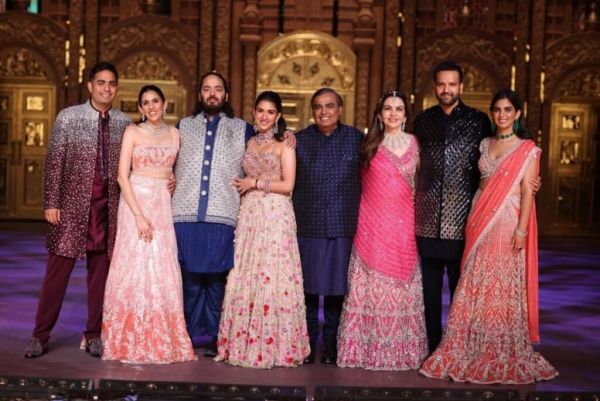
In a time of ideological divisions, fractured global dialogues, and rising individualism, the world searches for systems that don’t merely tolerate diversity but celebrate it. Few cultures preach this profound idea: Unity through diversity. At the heart of India’s millennia-old spiritual wisdom lies an inclusive worldview, which isn’t just philosophical, but intensely lived.
And perhaps, no recent event brought this philosophy to global attention as powerfully as the wedding of Anant Ambani in July 2024. While the event captivated international headlines for its grandeur and guest list, its more profound message was subtle yet striking Inclusivity anchored in tradition. Held in Mumbai, the wedding wasn’t merely a union between two individuals; it was a confluence of faith, heritage, and global harmony. From Silicon Valley to Saudi Arabia, from spiritual gurus to sovereign leaders, the guest list embodied the world in dialogue. Political dignitaries like John Kerry, Tony Blair, and President Samia Suluhu Hassan, among others, stood side by side with ISKCON monks, Shankaracharyas, and Vedic scholars.
The wedding was not just about opulence—it was a reflection of how family values and spiritual discipline remain central to Indian tradition, even amidst modern success. The Ambanis’ decision to follow ancient Vedic rituals, to include a mass wedding of underprivileged couples, and to serve over 1,000 meals daily through a bhandara (community kitchen), turned a private celebration into a world benchmark on compassionate wealth.
From the resplendent Banaras-themed décor to the Valley of Gods performance led by Nita Ambani, the ceremonies radiated cultural richness while staying anchored in humility and service. Guests from all backgrounds, dressed ‘Resplendently Indian, became part of a shared experience—united not by uniformity, but by reverence.
What made this moment so powerful wasn’t just the scale or symbolism, it was the spirit of inclusion that permeated it all. In an increasingly segmented world, where difference often leads to distrust, India offered an alternative: difference as a divine deed.
Just as Lord Krishna teaches in the Hindu scripture sacred book ‘Shrimad Bhagavad Gita’ that truth wears many faces, this wedding reminded the world that tradition can be expansive, not exclusive. That wealth, when paired with wisdom, becomes a force for upliftment. And that cultural diplomacy, when rooted in authenticity, has the power to heal global narratives. This layered, open-hearted approach to truth is the essence of Indian inclusivity, and it was this same spirit that the Ambani wedding reflected to the world.




